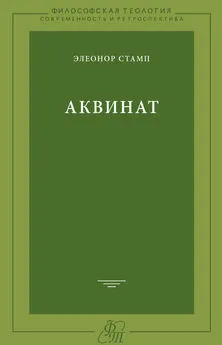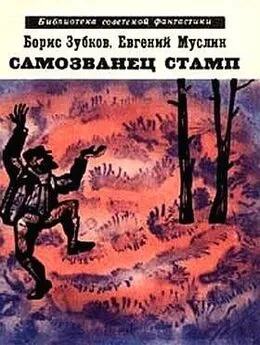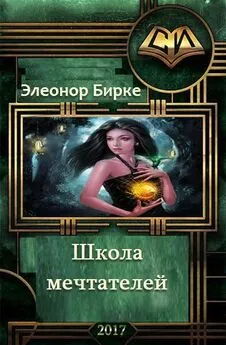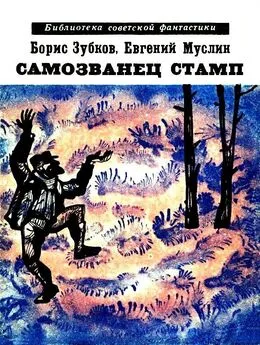Элеонор Стамп - Аквинат
- Название:Аквинат
- Автор:
- Жанр:
- Издательство:Литагент «Знак»5c23fe66-8135-102c-b982-edc40df1930e
- Год:2013
- Город:Москва
- ISBN:978-5-9551-0662-5
- Рейтинг:
- Избранное:Добавить в избранное
-
Отзывы:
-
Ваша оценка:
Элеонор Стамп - Аквинат краткое содержание
Элеонор Стамп – американская исследовательница философии и теологии Фомы Аквинского, автор многочисленных статей и книг, посвященных проблемам философской медиевистики и философской теологии. Монография «Аквинат», опубликованная в 2003 г., признана одной из лучших работ о философии св. Фомы, вышедших в свет в последнее десятилетие. На русский язык переводится впервые.
Аквинат - читать онлайн бесплатно ознакомительный отрывок
Интервал:
Закладка:
Nathan, N. M. L. (1993) “Weak Materialism”, in Howard Robinson (ed.), Objections to Physicalism (Oxford: Clarendon Press).
Nelson, Herbert (1987) “Time(s), Eternity, and Duration”, International Journal for Philosophy of Religion 22: 3–19.
Nussbaum, Martha C. (1992) “The Text of Aristotle’s De anima”, in Martha C. Nussbaum and Amélie O. Rorty (eds), Essays on Aristotle’s De anima (Oxford: Clarendon Press), pp. 1–6.
O’Connor, Timothy (1994) “Emergent Properties”, American Philosophical Quarterly 31: 91–104.
O’Leary, Joseph M. (1952) The Development of the Doctrine of St. Thomas Aquinas on the Passion and Death of Our Lord (Chicago: J. S. Paluch Co., Inc.).
Olson, Eric (1997) The Human Animal (Oxford: Oxford University Press).
O’Meara, Thomas F. (1997) Thomas Aquinas: Theologian (Notre Dame, IN: University of Notre Dame Press).
Owen, Gwilym Ellis Lane (1966) “Plato and Parmenides on the Timeless Present”, Monist L: 317–340.
Owens, Joseph (1980) St. Thomas Aquinas on the Existence of God: Collected papers of Joseph Owens, (ed.) J. Catan (Albany, NY: State University of New York Press).
– (1986) “Aquinas’ Distinction at De ente et essentia 4.119–123”, Mediaeval Studies 48: 264–287.
– (1992a) “Aristotle and Aquinas on Cognition”, in Richard Bosley and Martin Tweedale (eds), Aristotle and His Medieval Interpreters, Canadian Journal of Philosophy, supplementary volume (Calgary: University of Calgary Press), pp. 103–123.
– (1992b) Cognition: An Epistemological Inquiry (Houston, TX: Center for Thomistic Studies).
– (1993) “Aristotle and Aquinas”, in N. Kretzmann and E. Stump (eds), The Cambridge Companion to Aquinas (Cambridge: Cambridge University Press), pp. 38–59.
Parente, Pietro (1949) De verbo incarnato, 3rd edn (Rome: Marietti).
Pasnau, Robert (1997) Theories of Cognition in the Later Middle Ages (Cambridge: Cambridge University Press).
– (2002) Thomas Aquinas on Human Nature: A Philosophical Study of Summa theologiae 1a, 75–89 (London: Cambridge University Press).
Pegis, Anton Charles (1934) St Thomas and the Problem of the Soul in the Thirteenth Century (Toronto: Pontifical Institute of Mediaeval Studies).
Pernick, Martin S. (1985) A Calculus of Suffering: Pain, Professionalism, and Anesthesia in Nineteenth Century America (New York: Columbia University Press).
Perry, John (1979) “The Problem of the Essential Indexical”, Nous 13: 3–21.
Peter of Spain (1972) Tractatus, (ed.) L. M. De Rijk (Amsterdam: Van Gorcum & Co.).
Plantinga, Alvin (1980) Does God Have a Nature? (Milwaukee: Marquette University Press).
– (1983) “Reason and Belief in God”, in Alvin Plantinga and Nicholas Wolterstorff (eds), Faith and Rationality: Reason and Belief in God (Notre Dame, IN: University of Notre Dame Press).
– (1992) “An Evolutionary Argument Against Naturalism”, Logos 12: 27–49.
– (1993a) Warrant: The Current Debate (Oxford: Oxford University Press).
– (1993b) Warrant and Proper Function (Oxford: Oxford University Press).
– (2000) Warranted Christian Belief (Oxford: Oxford University Press).
Pieper, Josef (1962) Guide to Thomas Aquinas (Notre Dame, IN: University of Notre Dame Press).
Pike, Nelson (1969) “Omnipotence and God’s Ability to Sin”, American Philosophical Quarterly 6: 208–216.
– (1970) God and Timelessness (London: Routledge and Kegan Paul).
Potts, Timothy (ed.) (1980) Conscience in Medieval Philosophy (Cambridge: Cambridge University Press).
Putallaz, François-Xavier (1991) Le Sens de la Reflexion chez Thomas D’Aquin (Paris: Librairie Philosophique J. Vrin).
Quinn, Philip (1978) Divine Commands and Moral Requirements (Oxford: Clarendon Press).
– (1997) “Tiny Selves: Chisholm on the Simplicity of the Soul”, in Louis E. Hahn (ed.), Roderick M. Chisholm (Boston: Open Court Press).
Rand, Edward Kennard (1946) Cicero in the Courtroom of St. Thomas Aquinas (Milwaukee: Marquette University Press).
Reith, Herman (1958) The Metaphysics of St. Thomas Aquinas (Milwaukee: The Bruce Publishing Company).
Riesenhuber, Klaus (1974) “The Bases and Meaning of Freedom in Thomas Aquinas”, Proceedings of the American Catholic Philosophical Association 48: 99–111.
Rivière, Jean (1909) The Doctrine of the Atonement: A Historical Essay, trans. Luigi Cappadelta. (St. Louis, MO: Herder).
Robinson, Howard (ed.) (1993) Objections to Physicalism (Oxford: Clarendon Press).
Rock, Irvin (1987) The Logic of Perception (Cambridge, MA: MIT Press, Bradford Books).
Rogers, Eugene F. (1995) Thomas Aquinas and Karl Barth: Sacred Doctrine and the Natural Knowledge of God (Notre Dame, IN: University of Notre Dame Press).
Ross, James F. (1969) Philosophical Theology (Indianapolis and New York: Bobbs-Merrill).
– (1981) Portraying Analogy (Cambridge: Cambridge University Press).
– (1985) “Aquinas on Belief and Knowledge”, in G. Etzkorn (ed.), Essays Honoring Allan B. Wolter (St. Bonaventure, NY: Franciscan Institute).
Rowe, William (1984) “Rationalistic Theology and Some Principles of Explanation”, Faith and Philosophy 1: 357–369.
– (1986) “The Empirical Argument from Evil”, in Robert Audi and William Wainwright (eds), Rationality, Religious Belief and Moral Commitment:
New Essays in the Philosophy of Religion (Ithaca, NY: Cornell University Press).
– (1993) “The Problem of Divine Perfection and Freedom”, in Eleonore Stump (ed.), Reasoned Faith (Ithaca, NY: Cornell University Press), pp. 223–233.
Salmon, Wesley C. (1975) Space, Time, and Motion (Encino, CA: Dickenson Publishing Company).
Schieck, Charles A. (1955) “St. Thomas on the Nature of Sacramental Grace”, The Thomist 18: 1–30 and 242–278.
– (1989b) “Review of Thomas Morris’s The Logic of God Incarnate”, Faith and Philosophy 6: 218–223.
– (1990a) “Providence and the Problem of Evil”, in Thomas Flint (ed.), Christian Philosophy (Notre Dame, IN: University of Notre Dame Press), pp. 51–91.
– (1990b) “Intellect, Will, and the Principle of Alternate Possibilities”, in Michael Beaty (ed.), Christian Theism and the Problems of Philosophy (Notre Dame, IN: University of Notre Dame Press), pp. 254–285. Reprinted in John Martin Fischer and Mark Ravizza (eds), Moral Responsibility (Ithaca, NY: Cornell University Press, 1993), pp. 237–262.
– (1992) “Aquinas on the Foundations of Knowledge”, Canadian Journal of Philosophy, supp. vol. 17: 125–158.
– (1993a) “Aquinas on the Sufferings of Job”, in E. Stump (ed.) Reasoned Faith (Ithaca, NY: Cornell University Press), pp. 328–357.
– (1993b) “Biblical Commentary and Philosophy”, in N. Kretzmann and E. Stump (eds), The Cambridge Companion to Aquinas (Cambridge: Cambridge University Press), pp. 252–268.
– (1993c) “Intellect, Will, and Alternate Possibilities”, reprinted in John Martin Fischer and Mark Ravizza (eds), Perspectives on Moral Responsibility (Ithaca, NY: Cornell University Press), pp. 237–262.
– (1996a) “Libertarian Freedom”, in Daniel Howard-Snyder and Jeff Jordan (eds), Faith, Freedom, and Rationality: Philosophy of Religion Today (Lanham, MD: Rowman and Littlefield), pp. 73–88.
– (1996b) “Persons: Identification and Freedom”, Philosophical Topics 24: 183–214.
– (1999a) “Ockham on Sensory Cognition”, in Paul Spade (ed.), The Cambridge Companion to Ockham (Cambridge: Cambridge University Press), pp. 168–203.
– (1999b) “Word and Incarnation”, in Marco Olivetti (ed.), Incarnation (Padua: Edam), pp. 543–554.
– (1999c) “Alternative Possibilities and Moral Responsibility: The Flicker of Freedom”, The Journal of Ethics, 3: 299–324.
– (2000) “Transfer Principles and Moral Responsibility” (with John Martin Fischer), Philosophical Perspectives, 14: 47–55.
– (2001) “Augustine on Free Will”, in Eleonore Stump and Norman Kretzmann (eds), The Cambridge Companion to Augustine (Cambridge: Cambridge University Press), pp. 124–147.
– (forthcoming) “Moral Responsibility without Alternative Possibilities”, in David Widerker and Michael McKenna (eds), Moral Responsibility and Alternative Possibilities (Aldershot: Ashgate Press).
Stump, Eleonore and Kretzmann, Norman (1988) “Being and Goodness”, in T. V. Morris (ed.), Divine and Human Action (Ithaca, NY: Cornell University Press), pp. 281–312.
– (1992) “Eternity, Awareness, and Action”, Faith and Philosophy 9: 463–482.
– (1998) “Eternity and God’s Knowledge: A Reply to Shanley”, The American Catholic Philosophical Quarterly 72: 439–445.
Stump, Eleonore and MacDonald, Scott (eds) (1998) Aquinas’s Moral Theory: Essays in Honor of Norman Kretzmann (Ithaca, NY: Cornell University Press).
Swinburne, Richard (1979) The Existence of God (Oxford: Clarendon Press).
– (1986) The Evolution of the Soul (Oxford: Clarendon Press).
– (1993) “God and Time”, in Eleonore Stump (ed.), Reasoned Faith (Ithaca, NY: Cornell University Press), pp. 204–222.
Tachau, Katharine (1982) “The Problem of the species in medio at Oxford in the Generation after Ockham”, Mediaeval Studies 44: 394–443.
– (1988) Vision and Certitude in the Age of Ockham: Optics, Epistemology and the Foundations of Semantics 1250–1345 (Leiden: E. J. Brill).
Tilley, Terrence W. (1991) The Evils of Theodicy (Washington, DC: Georgetown University Press).
Tomarchio, John (1996) “The Modus Principle in the Writings of Saint Thomas Aquinas”, dissertation, The Catholic University of America, Washington, DC.
Torrell, Jean-Pierre O. P. (1993) Initiation à Saint Thomas d’Aquin: Sa Personne et son Oeuvre (Introduction to Saint Thomas Aquinas: His Character and His Work) (Fribourg and Paris: Éditions Universitaires and Éditions du Cerf). Translated as Saint Thomas Aquinas. The Person and his Work, vol. 1, trans. Robert Royal (Washington, DC: Catholic University of America Press).
Tugwell, Simon (1988) Albert and Thomas: Selected Writings, The Classics of Western Spirituality (Mahwah, NJ: Paulist Press).
Tuninetti, Luca (1996) “Per se notum”. Die logische Beschaffenheit des Selbstverständlichen im Denken des Thomas von Aquin (Leiden: E. J. Brill).
Tweedale, Martin (1990) “Mental Representation in Later Medieval Scholasticism”, in J. C. Smith (ed.), Historical Foundations of Cognitive Science (Dordrecht: Kluwer Academic Publishers), pp. 35–52.
Van Engen, John (1988) Devotio Moderna: Basic Writings (New York: Paulist Press).
Van Fraassen, Bas (1984). “Belief and the Will”, The Journal of Philosophy 81: 235–256.
Van Inwagen, Peter (1978) “The Possibility of Resurrection”, The International Journal for Philosophy of Religion 9: 114–121.
– (1983) An Essay in Free Will (Oxford: Clarendon Press).
– (1988) “And Yet There Are Not Three Gods But One God”, in Thomas
V. Morris (ed.), Philosophy and the Christian Faith (Notre Dame, IN: The University of Notre Dame Press), pp. 241–278.
– (1990) Material Beings (Ithaca, NY: Cornell University Press).
– (1994a) “Composition as Identity”, in James Tomberlin (ed.), Philosophical Perspectives, vol. 8 (Atascadero, CA: Ridgeview Publishing Co.), pp. 207–219.
– (1994b) “Not by Confusion of Substance, but by Unity of Person”, in A. G. Padgett (ed.), Reason and the Christian Religion: Essays in Honour of Richard Swinburne (Oxford: Clarendon Press).
– (1999) “Incarnation and Christology”, The Routledge Encyclopedia of Philosophy (London: Routledge).
Читать дальшеИнтервал:
Закладка:









